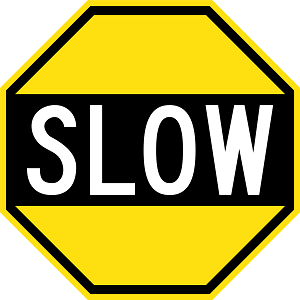
This year's general election could have a dampening effect on the housing market with many people likely to adopt a wait and see approach and delay making sale or purchase decisions until the election is over.
Property valuation and market analysis company Valocity has analysed property sales trends around the 2014 general election and compared them with trends in 2013 and 2014 to see if the last election had a noticeable impact on the market.
It found sales volumes nationwide were down an average 8% per month between the time when the date of the election was announced in March 2014 and it taking place in September that year, when compared to the same periods of 2013 and 2015.
The effect was even more pronounced in Auckland, with monthly sales down and average of 23% between the date when the election was announced and it being held (see graph below).
Valocity Valuation Manager James Wilson said the drop in sales was clearly uncharacteristic when compared to sales patterns from the previous and following years and was likely caused by the market adopting a wait and see approach.
"It's common for many local market participants to put purchase decisions on hold given there is a degree of uncertainty in the market due to the range of economic policies on offer during an election year.
"International investors will also adopt the same cautious approach, given their primary concern is market stability," he said.
However the figures also showed that there was a sharp uplift in sales once the election was over and the outcome was known, and the upturn continued into the following year.
That suggested that a stable government had a direct bearing on market confidence, Wilson said.
However Valocity also noted that other factors such as the introduction of loan-to-valuation ratio restrictions in 2013 and increased demand side pressures could also have affected the market prior to and immediately after the last election.
You can receive all of our property articles automatically by subscribing to our free email Property Newsletter. This will deliver all of our property-related articles, including auction results and interest rate updates, directly to your in-box 3-5 times a week. We don't share your details with third parties and you can unsubscribe at any time. To subscribe just click on this link, scroll down to "Property email newsletter"and enter your email address.
4 Comments
The RBNZ raised the OCR 4? times in 2014 also. Perhaps that and other influences had more to do with changes in the housing market, than an election?
Valocity are being disingenuous about what was driving the market pre the 2014 election .
Fear of Labour and Capital Gains Tax was the thing.
CGT was Labour's Gallipoli moment , they got slaughtered .
No fool in his right mind would vote for such a tax , and no politician worth his salt would even try it this time
Andrew Little is way to sharp to try that again .
Yeah like China's Capital Flight has nothing to do with the down turn in the market. Which happened coincidentally when global property prices are starting to dip! Yes I'm sure Labour and the Greens also influenced Oz as well (NOT)!
Australia’s property price surge set to take a breather in 2017
http://www.dailytelegraph.com.au/news/national/australias-property-pric…
The cost of borrowing is going to dampen house prices. The Govt signalled that they intended to "manage" prices down as has successfully been done in Singapore, Hong Kong, London and other global cities. Funnily enough Donald Trump and his anticipated inflationary stimulus is actually probably having a bigger effect.
A fall in house prices would be healthy for our country in the medium term.

We welcome your comments below. If you are not already registered, please register to comment
Remember we welcome robust, respectful and insightful debate. We don't welcome abusive or defamatory comments and will de-register those repeatedly making such comments. Our current comment policy is here.